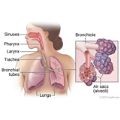Our Health Library information does not replace the advice of a doctor. Please be advised that this information is made available to assist our patients to learn more about their health. Our providers may not see and/or treat all topics found herein.
Blood Urea Nitrogen (BUN) Test
Test Overview
A blood urea nitrogen (BUN) test measures the amount of nitrogen in your blood that comes from the waste product urea. Urea is made when protein is broken down in your body. Urea is made in the liver and passed out of your body in the urine.
A BUN test is done to see how well your kidneys are working. If your kidneys are not able to remove urea from the blood normally, your BUN level rises. Heart failure, dehydration, or a diet high in protein can also make your BUN level higher. Liver disease or damage can lower your BUN level. A low BUN level can occur normally in the second or third trimester of pregnancy.
Blood urea nitrogen to creatinine ratio (BUN:creatinine)
A BUN test may be done with a blood creatinine test. The level of creatinine in your blood also tells how well your kidneys are working—a high creatinine level may mean your kidneys are not working properly. Blood urea nitrogen (BUN) and creatinine tests can be used together to find the BUN-to-creatinine ratio (BUN:creatinine). A BUN-to-creatinine ratio can help your doctor check for problems, such as dehydration, that may cause abnormal BUN and creatinine levels.
Why It Is Done
A BUN test is done to:
- See if your kidneys are working normally.
- See if your kidney disease is getting worse.
- See if treatment of your kidney disease is working.
- Check for severe dehydration. Dehydration generally causes BUN levels to rise more than creatinine levels. This causes a high BUN-to-creatinine ratio. Kidney disease or blockage of the flow of urine from your kidney causes both BUN and creatinine levels to go up.
How To Prepare
Do not eat a lot of meat or other protein in the 24 hours before having a BUN test.
How It Is Done
A health professional uses a needle to take a blood sample, usually from the arm.
How It Feels
When a blood sample is taken, you may feel nothing at all from the needle. Or you might feel a quick sting or pinch.
Risks
There is very little chance of having a problem from this test. When a blood sample is taken, a small bruise may form at the site.
Results
Normal
Each lab has a different range for what's normal. Your lab report should show the range that your lab uses for each test. The normal range is just a guide. Your doctor will also look at your results based on your age, health, and other factors. A value that isn't in the normal range may still be normal for you.
High values
- A high BUN value can mean kidney injury or disease is present. Kidney damage can be caused by diabetes or high blood pressure that directly affects the kidneys. High BUN levels can also be caused by low blood flow to the kidneys caused by dehydration or heart failure.
- Many medicines may cause a high BUN. Be sure to tell your doctor about all the nonprescription and prescription medicines you take.
- A high BUN value may be caused by a high-protein diet, Addison's disease, or tissue damage (such as from severe burns), or from bleeding in the gastrointestinal tract.
- High BUN-to-creatinine ratios occur with sudden (acute) kidney problems, which may be caused by shock or severe dehydration. A very high BUN-to-creatinine ratio may be caused by bleeding in the digestive tract or respiratory tract.
Low values
- A low BUN value may be caused by a diet very low in protein, by malnutrition, or by severe liver damage.
- Drinking too much liquid may cause overhydration and cause a low BUN value.
- Women and children may have lower BUN levels than men because of how their bodies break down protein.
- A low BUN-to-creatinine ratio may be caused by a diet low in protein, a severe muscle injury called rhabdomyolysis, pregnancy, cirrhosis, or syndrome of inappropriate antidiuretic hormone secretion (SIADH).
Related Information
Credits
Current as of: September 10, 2024
Author: Ignite Healthwise, LLC Staff
Clinical Review Board
All Ignite Healthwise, LLC education is reviewed by a team that includes physicians, nurses, advanced practitioners, registered dieticians, and other healthcare professionals.
Current as of: September 10, 2024
Author: Ignite Healthwise, LLC Staff
Clinical Review Board
All Ignite Healthwise, LLC education is reviewed by a team that includes physicians, nurses, advanced practitioners, registered dieticians, and other healthcare professionals.
This information does not replace the advice of a doctor. Ignite Healthwise, LLC disclaims any warranty or liability for your use of this information. Your use of this information means that you agree to the Terms of Use and Privacy Policy. Learn how we develop our content.
To learn more about Ignite Healthwise, LLC, visit webmdignite.com.
© 2024-2025 Ignite Healthwise, LLC.







